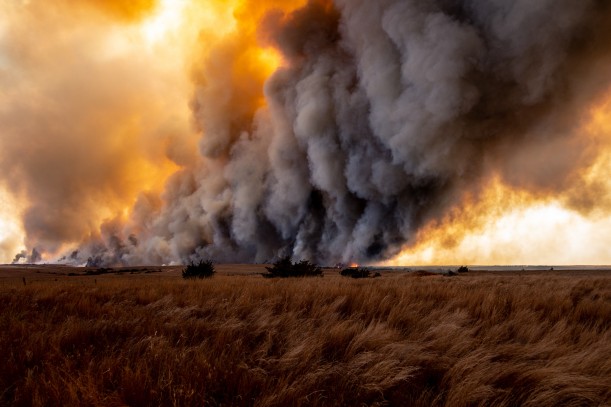Report: Less Than a Decade Remains for Climate Action

This summer’s unprecedented heat waves, droughts, fires and severe storms are occurring now, where global temperatures have only risen 1.2 degrees Celsius. Scientists project that average temperatures will rise by 2 degrees Celsius in the next two decades. (Adobe Stock via NNC)
Less than a decade remains to avoid potentially catastrophic impacts of a warming planet, according to the latest report from top scientists.
John Crabtree, campaign representative for the Sierra Club’s Beyond Coal campaign in Nebraska, said proposals currently making their way through Congress would be a good start.
Plans call for converting 80% of the energy sector to renewable sources and cutting climate pollution by 50% by 2030. Crabtree said the steps are critical to limit warming to 1.5 degrees Celsius above pre-industrial levels.
“This is a reaction to the fact that we are in this fight now, we are experiencing the climate crisis now,” Crabtree said. “And it happens in our communities, not just somewhere else.”
Last month’s Intergovernmental Panel on Climate Change report projected if fossil fuels continue to burn, global temperatures could rise three degrees by the turn of the century, a scenario that could render the planet unlivable for large numbers of species, and lead to mass migrations and resource wars.
Critics of the proposals countered the measures are too costly, and claim reducing emissions would hurt the economy.
Ashik Siddique, research analyst for the National Priorities Project, said the Pentagon has known for years climate change poses one of the greatest threats to national security, yet over the past two decades, Americans have seen 6.4 trillion of their tax dollars funneled into foreign wars.
Siddique warned even greater investments will be needed to stop fossil fuel emissions in time.
“To shift our entire electricity grid in the United States to renewable energy, one cost estimate has that at $4.5 trillion, which is expensive,” Siddique said. “But again, it’s less than the $6 trillion that we spent on war.”
When enough Americans viewed the rise of fascism as an existential threat during World War II, Siddique noted the U.S. switched from producing cars, appliances and children’s toys to make tanks, planes and ships.
Crabtree said the United States has never shied away from its responsibilities as a world leader.
“This country has footed the bill for massive wars that have cost trillions. We have done that because we believed that we had to do that,” Crabtree said. “Our country should have the courage to step up and make an investment in addressing the climate crisis as well.”
This article was produced by the Nebraska News Connection, which is part of the Public News Service. Find more at publicnewsservice.org.
User login
Omaha Daily Record
The Daily Record
222 South 72nd Street, Suite 302
Omaha, Nebraska
68114
United States
Tele (402) 345-1303
Fax (402) 345-2351




